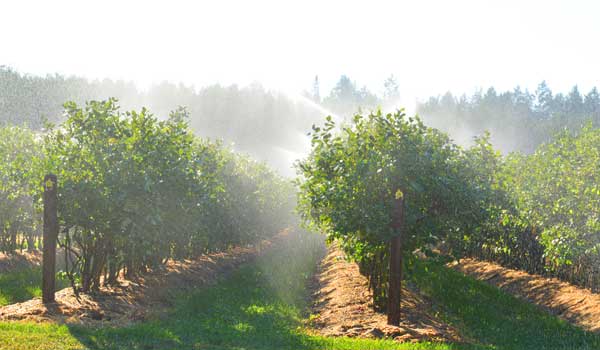
FSMA and Oregon's Blueberry Industry
By Stephanie Page, Director of Food Safety and Animal Health, Oregon Department of Agriculture
Although new federal produce safety requirements are complex, blueberry growers can take a simple step to prepare: sign up for an approved produce safety training. Not only is this training required, but it will also help growers learn about the rule and how to comply.
The Food Safety Modernization Act (FSMA), passed by Congress in 2011 to take a more proactive approach to food safety, required the Food and Drug Administration (FDA) to adopt a rule to ensure produce safety. The new rule includes many provisions familiar to growers who have participated in certification programs – for example, employee health and hygiene provisions. It also includes new, required training and significantly different agricultural water standards.
The Produce Safety Alliance (PSA), a national program headquartered at Cornell University, has developed a FDA-approved training curriculum in produce safety that satisfies the training requirement. Local trainers are becoming accredited through train-the-trainer programs and will be ready to roll out grower trainings over the next few years in the Pacific Northwest. To watch for trainings in your area, visit the Produce Safety Alliance web site at https://producesafetyalliance.cornell.edu/
For most producers, the agricultural water standards represent the most complex and steepest learning curve associated with the new rule. Fortunately, in response to concerns about that complexity, the FDA announced in late January 2017 that it will take another look at the rule requirements related to agricultural water. This is a great relief to irrigators as well as state agriculture agencies who have been struggling with how to communicate these complex requirements to the produce farming community.
Most provisions in the new produce safety rule take effect in two to four years, depending on farm size, while the agricultural water provisions take effect in four to six years. Due to the number of produce farms in the Pacific Northwest, we anticipate extensive demand for the required produce safety training and encourage growers to start searching for trainings now.
Oregon Department of Agriculture has received a FDA grant for outreach, technical assistance and inventory related to the produce safety rule. To implement the outreach, technical assistance and inventory work ODA plans to hire three staff and will be doing this hiring over the next few months. These staff will network with produce growers to make sure they are aware of the new rule and build a voluntary inventory of farms which is a required component of this project.
ODA has also been discussing with stakeholders whether or not it should take a role in conducting inspections for compliance with the produce safety rule. We continue to welcome stakeholder feedback on this issue and have a concept in the Oregon Legislature this year to obtain that authority.
Please contact us if you have questions about the new produce safety rule and share your thoughts about ODA taking on produce safety inspection authority. I can be reached at 503-986-4727 or by email at spage@oda.state.or.us.
We look forward to working with the blueberry industry on produce safety efforts. |
